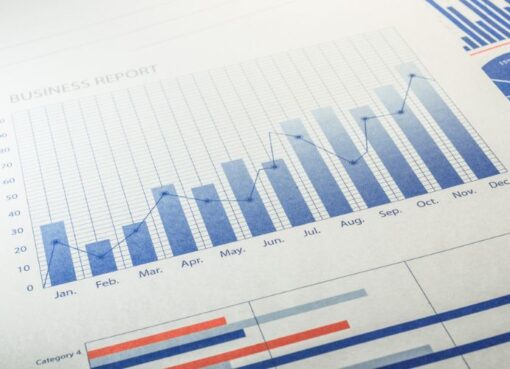Are you tired of paying high premiums for your car insurance? Do you want to find a way to reduce your costs and get better coverage? If so, you’re in luck! In this article, we will provide you with the information and tips you need to get a better rate on car insurance.
Table of Contents:
1. Introduction
2. Understand How Car Insurance Premiums are Calculated
3. Shop Around and Compare Quotes
4. Bundle Your Insurance Policies
5. Choose a Higher Deductible
6. Improve Your Credit Score
7. Drive Safely and Maintain a Clean Driving Record
8. Take Advantage of Discounts
9. Consider Telematics Programs
10. Review and Update Your Coverage
11. Avoid Making Small Claims
12. Reduce Your Annual Mileage
13. Consider Dropping Unnecessary Coverage
14. Final Thoughts
Introduction
Car insurance is a necessity for anyone who drives a vehicle. However, the cost of car insurance can vary widely depending on factors such as your age, driving history, and the type of car you drive. Fortunately, there are several steps you can take to reduce your car insurance premiums and get better coverage. In this article, we will outline the most effective ways to get a better rate on car insurance.
Understand How Car Insurance Premiums are Calculated
Before you can start shopping for car insurance, it’s important to understand how premiums are calculated. Insurers consider a variety of factors when determining your premium, including your driving history, age, gender, location, and the type of car you drive. They also consider your credit score, as studies have shown that people with higher credit scores are less likely to file insurance claims.
Shop Around and Compare Quotes
One of the best ways to get a better rate on car insurance is to shop around and compare quotes from different insurers. Each insurer uses its own formula to calculate premiums, so prices can vary widely. Make sure to compare apples-to-apples when you’re getting quotes, so you’re comparing the same level of coverage. You can use online comparison tools to get quotes from multiple insurers at once.
Bundle Your Insurance Policies
If you have multiple insurance policies, such as homeowners or renters insurance, consider bundling them with your car insurance. Insurers often offer discounts to customers who have multiple policies with them. This can result in significant savings on your premiums.
Choose a Higher Deductible
Another way to lower your car insurance premiums is to choose a higher deductible. Your deductible is the amount you have to pay out-of-pocket before your insurance kicks in. By choosing a higher deductible, you can lower your premiums. Just make sure you choose a deductible that you can afford to pay in the event of an accident.
Improve Your Credit Score
As mentioned earlier, your credit score can affect your car insurance premiums. If you have a poor credit score, consider taking steps to improve it. Pay your bills on time, reduce your debt, and check your credit report regularly for errors.
Drive Safely and Maintain a Clean Driving Record
Your driving record is one of the most important factors that insurers consider when determining your premiums. If you have a history of accidents or traffic violations, you’ll pay more for car insurance. To get a better rate, focus on driving safely and maintaining a clean driving record.
Take Advantage of Discounts
Many insurers offer discounts to customers who meet certain criteria. For example, you may be eligible for a discount if you’re a student with good grades, if you’re a member of a professional organization, or if you’re a member of the military.
Consider Telematics Programs
Telematics programs use technology to track your driving behavior and offer discounts based on how safely you drive. Some insurers offer telematics programs that use a mobile app to track your driving, while others use a device that plugs into your car’s diagnostic port. By participating in a telematics program and driving safely, you can lower your premiums.
Review and Update Your Coverage
It’s important to review your car insurance coverage regularly and make sure you have the right amount of coverage for your needs. If you have an older car that’s paid off, you may not need as much coverage as you did when the car was new. On the other hand, if you have a new car or if you’re still making payments on your car, you may need more coverage. Make sure to review your coverage and update it as needed.
Avoid Making Small Claims
Filing a claim for a small amount of damage can actually end up costing you more in the long run. If the cost of the damage is only slightly more than your deductible, it may be better to pay for the repairs out-of-pocket and avoid filing a claim. Filing too many claims can also cause your premiums to go up.
Reduce Your Annual Mileage
Insurers consider how many miles you drive each year when calculating your premiums. If you can reduce your annual mileage, you may be able to lower your premiums. Consider carpooling, using public transportation, or working from home to reduce the amount of driving you do.
Consider Dropping Unnecessary Coverage
If you have comprehensive and collision coverage, you may be paying for coverage that you don’t need. If your car is old and has a low market value, it may not be worth paying for comprehensive and collision coverage. Make sure to review your coverage and consider dropping any unnecessary coverage.
Final Thoughts
Getting a better rate on car insurance requires a little bit of effort, but the savings can be significant. By understanding how car insurance premiums are calculated and taking steps to reduce your risk, you can lower your premiums and get better coverage. Make sure to shop around and compare quotes, take advantage of discounts, and review your coverage regularly.




